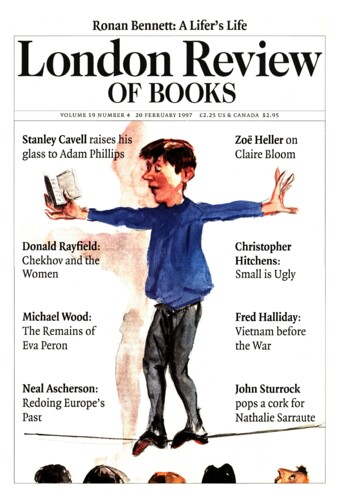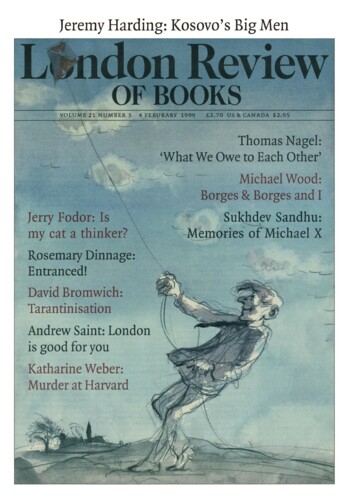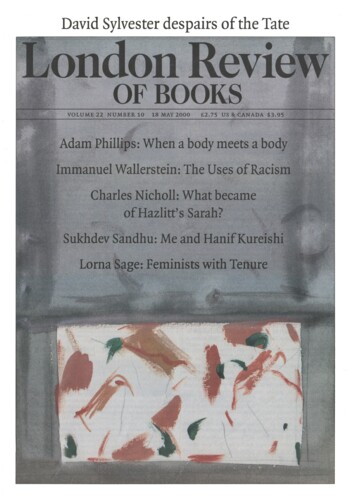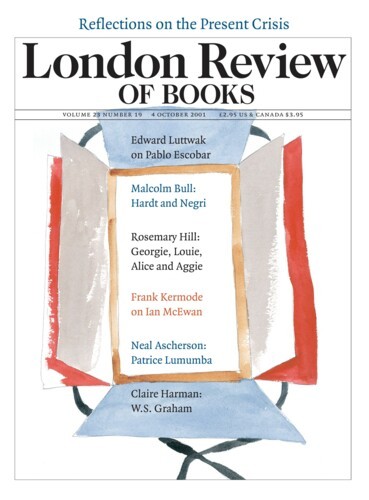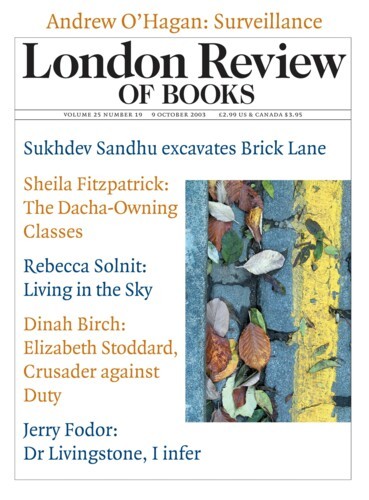At the Hop
Sukhdev Sandhu, 20 February 1997
The ten thousand blacks in London in the 18th century had a visibility and presence completely out of proportion to their numbers. They featured in the prints of Hogarth, Cruikshank and Gillray; their heads were pictured on countless tradesmen’s cards; they appeared in advertisements (‘Ah Massa, if I am continued in your service, dat will be ample reward for Scipio bring good news to you of Packwood’s new invention that will move tings with a touch’) and they themselves were advertised: ‘To be SOLD. A Black Girl, the Property of John Bull, Eleven Years of Age, who is extremely handy, works at her Needle tolerably, and speaks English perfectly well. Enquire of Mrs Owen, at the Angel Inn, behind St Clement’s Church, the Strand.’ Huge, ornate images of negroes were displayed outside shops, taverns and coffeehouses, many of which bore names such as the Blackamoor’s Head. Thanks to its blacks London had an air of vibrant cosmopolitanism that attracted the young Wordsworth, for example, emerging from three years of blanched provincialism at Cambridge:
